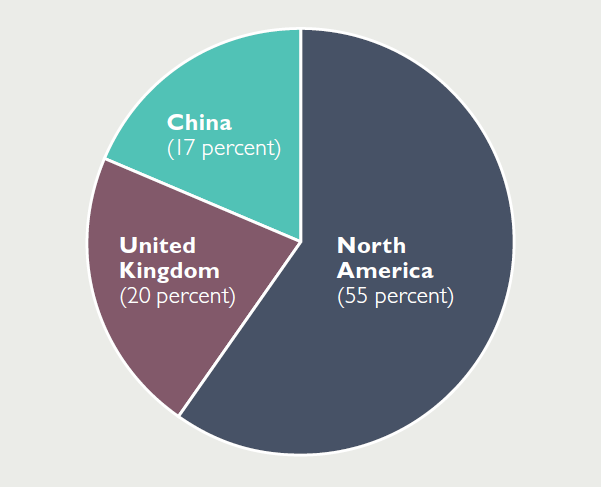
CHEAT SHEET
- Begin with the contract. Mitigating a dispute should begin in the contract stage with a dispute resolution clause that specifies the jurisdiction and a provision requiring parties to first attempt to resolve the dispute internally through negotiations.
- Conduct a case assessment. Before turning to litigation or arbitration, conduct a case assessment to map out potential outcomes of proceeds, related costs, timeline, and the impact on business.
- Gather the evidence. At the onset of the dispute, secure all relevant documents and research rules governing documentary evidence in the jurisdiction.
- Assemble a team. Once the dispute resolution forum has been decided, assemble an in-house team and retain outside counsel — at least one to serve as local counsel in the foreign jurisdiction, and one to represent the company in the home jurisdiction.
Many companies, despite their best efforts to mitigate risk, eventually become entangled in legal disputes. Thus, a structure and process for managing legal dispute proceedings is a key component of an effective global business strategy. The aims of this structure should include not just limiting the potential costs arising from a dispute and preventing a drain on corporate time and resources, but also assisting the company to achieve its strategic business goals.
In the cross-border context, there are a host of variables that can affect these aims. The company’s business and legal risks can be influenced not just by local laws and procedures, but by political, social, and cultural factors as well. Effective management of cross-border disputes must, therefore, account for many variables.
The role of in-house counsel in managing legal disputes is key, but by no means exclusive. Counsel must also rely upon other executives and departments within the corporation and draw upon the resources they can provide.
Role of in-house counsel
In formulating processes and strategies for managing legal disputes, counsel for the multinational corporation must think broadly.
First, in-house lawyers in today’s corporation are expected not only to fulfill their traditional responsibilities, such as drafting contracts, preparing corporate documents, or overseeing lawsuits. In addition, they are expected to establish processes to identify risks to the business and to manage and mitigate those risks. As such, they do not function in isolation, but as an integral part of the corporation’s management. It is essential for in-house counsel to know and understand the company’s business, strategy, and products, as well as the sector the company operates in and its competitors. In a multinational enterprise, this means that the corporation’s in-house lawyers need to understand the company’s business — and the threats to that business — in all of the company’s markets and regions.
Furthermore, multinational companies face risks that are not bounded by traditional national borders. They do not always face legal risks within a single, isolated jurisdiction, but across jurisdictions. Regulators in one country, for example, are likely to be interested in the same issues as regulators elsewhere. And a business practice that draws legal scrutiny in one part of the world is likely to draw attention in other regions. This necessitates a broad-based, global view of dispute management.
The role of in-house counsel in managing legal disputes is key, but by no means exclusive. Counsel must also rely upon other executives and departments within the corporation and draw upon the resources they can provide. They must work hand-in-glove not just with the company’s executive management, but with representatives of other subdivisions within the company such as product design, engineering, merchandising, compliance, audit, marketing, logistics, and public affairs. The company’s in-house lawyers in the jurisdiction where the dispute occurs are also likely to play a critical role in dispute management and should be seen as key members of the management team. The “on-the-ground” legal team may offer particular insight into the local legal environment and other regional issues that may be especially important, such as political or cultural concerns, customs, and the local market.
In assessing key dispute risks, counsel should consider the types of disputes that are most likely to arise and the impact of each on the company’s business. Disputes can arise in a variety of contexts — with suppliers, customers, employees, competitors, regulators, community groups, and NGOs. Each may require a different approach. For example, a dispute with one constituency may trigger a dispute with another. A regulatory inquiry, for example, could trigger consumer lawsuits and vice versa. Counsel must, therefore, consider the range of disputes that could arise from a particular aspect of the company’s business and how best to manage the entire range.
Finally, in managing cross-border legal disputes, counsel will need to consider a wide array of issues that are interconnected and dependent on one another. Legal strategy, for example, influences the litigation budget, but the reverse is also true — cost concerns affect strategy as well. Local laws and procedures can affect both. Similarly, strategy and budget are likely to influence whether to seek an early resolution through mediation or some other means. The strength of the company’s legal arguments and the chances for an early dispositive ruling — prior to discovery — likewise impact strategy. Thus, in managing any dispute, counsel must utilize a holistic approach. This is especially so in the cross-border context due to the greater number and complexity of considerations that can come into play.
By adopting an approach to managing legal disputes that is systematic, counsel will be better able to advance the company’s strategic goals, while avoiding excessive costs and undue disruption to the business.
Dispute management begins long before the actual onset of a dispute
Ideally, the management of a legal dispute should begin long before there is even a glimmer that legal proceedings are a possibility.
At the outset, some form of dispute resolution clause should be included in any business contract, especially a contract between entities based in different countries. Otherwise, a company may be forced to confront a host of challenges arising out of litigation in a foreign jurisdiction — unfamiliar laws, extreme delays, and hostile courts, to name a few. Moreover, without choice of law and choice of forum provisions, the parties may expend significant time and resources in preliminary proceedings to determine which court should decide the matter and which substantive law will govern. The most common ways of addressing these concerns are through the selection of methods for alternative dispute resolution, arbitration, or forum selection clauses, and choice of law provisions. Many cross-border contracts also contain a provision that requires an effort by the parties to resolve the dispute internally through negotiations, often by escalation through the management ranks, or through mediation, before formal proceedings can commence.
A choice of forum, or jurisdictional, clause, specifies that the courts of a particular country or locale shall have jurisdiction over disputes arising under the contract. A jurisdictional clause can save time and expense that might be incurred in a dispute over which court or country can exercise jurisdiction. To avoid any uncertainty, the clause should specifically state that the courts of the chosen jurisdiction shall have “exclusive” jurisdiction over any dispute arising under the contract.
Some courts will interpret a jurisdictional clause to mean exclusive jurisdiction, even if the word “exclusive” is not used. But if the term is not specifically used, there may be uncertainty as to the eventual jurisdiction for any litigation that may arise. The selection of a well regarded legal system to adjudicate the dispute will increase the likelihood that the resulting judgment will be enforced elsewhere.
In deciding which legal system to choose, a number of considerations are likely to come into play: the parties’ convenience, including the location of witnesses and the language that is used; the quality of the court system; the likelihood that the judgment will be enforced in other countries; the costs of litigation in the chosen jurisdiction; and the timeframes for resolving the litigation.
A choice of law clause allows the parties to specify the substantive law that will apply to the contract in the event of a dispute. The governing law should be chosen at the start of the drafting process, inasmuch as the law that is chosen may affect the drafting process.
Choice of law provisions are recognized by courts in most advanced legal systems, absent a public policy issue to ignore the provision. In the absence of a choice of law clause, courts will resort to choice of law principles to determine the governing law, usually focusing on the relationship of the contract to the jurisdictions in question.
A choice of law clause does not, by itself, dictate the jurisdiction in which a dispute must be resolved, but ideally, the choice of law clause should match the choice of forum clause. If the choice of law clause does not match the chosen jurisdiction, a court in which litigation is brought may need to apply the law of a foreign jurisdiction, requiring the parties to submit evidence as to the substantive law if there are disputed points. English law and New York law are frequent choices in the cross-border context because they are predictable and well developed.
In dealings between companies based in different countries, it is common to choose arbitration for dispute resolution, rather than litigation. There are a host of considerations that may come into play in choosing arbitration rather than litigation. Arbitration is often seen as providing a neutral forum between entities based in different countries and offers more flexible procedures. Arbitration proceedings may also be confidential, depending on the applicable rules and the parties’ agreement. Arbitral awards are also more likely to be final, since judicial review is extremely limited in most jurisdictions (although this is a disadvantage when a judgment is adverse to your company, poorly reasoned, or incomplete). Emergency relief is not always available in arbitration, however, and it may be difficult if not impossible to join third parties to the proceedings. Nor do arbitral wards have any precedential value to non-parties to the dispute.
The parties to a cross-border contract should also consider the use of contractual provisions for the use of alternative dispute resolution (ADR), such as mediation. ADR can be used in conjunction with both litigation and arbitration. Because ADR is voluntary, it does not prevent formal litigation proceedings, unless a final settlement is reached, but can require that meaningful negotiations take place before any formal proceedings commence.
Most commonly cited regions

The percentage of survey respondents who said they’ve been involved in cross-border litigation in the past year jumped from 23 percent in 2017 to 38 percent in 2019.
Statistics are from AlixPartners’ 2019 Litigation and Corporate Compliance Survey © 2019 AlixPartners, LLP; reprinted with permission
Litigation costs keep climbing
Companies trying to strike the right balance between doing more work inhouse and hiring outside counsel focused more on internal resources last year. Although few respondents (17 percent) said they hired more law firms in 2017, 90 percent said their own litigation departments either increased or stayed the same size. Respondents cited controlling costs, including the management of eDiscovery spending, as a critical issue in their litigation departments. © 2018 AlixPartners, LLP; reprinted with permission
Litigation onset
When the prospect of an actual proceeding arises, steps that are taken early on may set the groundwork for the company to eventually achieve a more favorable outcome. An initial investment of time, consideration, and planning may also pay off by avoiding undue expense or surprise developments in the company’s case at a later time.
When a dispute arises, an initial consideration is whether the time and expense of litigation or arbitration can be avoided. Litigation or arbitration may not be the most desirable way to resolve a dispute. Rather, alternative solutions may be possible. Adversarial proceedings are usually costly in time and money, may be damaging to reputation and relationships, and are not entirely predictable. Before the decision is made to engage in the adversarial process, counsel will want to consider whether the corporation’s goals can be achieved through some other means, including negotiation, accommodation, and compromise.
Early case assessment is closely related to the decision as to whether to engage in adversarial proceedings. This is an important component of the management of any legal dispute, but it is all the more so in the cross-border context due to the wide variety of factors specific to the jurisdiction that may arise, and the inherent complexities of a cross-border dispute. This assessment should entail a comprehensive discussion of the range of possible outcomes of the proceeding, related costs, and the impact on the business. The timeframe for ultimate resolution may be a particular concern — in many jurisdictions, litigation can be extremely protracted and may even involve de novo appellate review, making the process even more time-consuming. Other considerations include whether there is a continuing business relationship between the parties, possible public relations impacts, and whether the company wants to be seen as litigious. All of these concerns can be greatly affected by the forum in question.
Focus on cross-border data challenges
North America and the United Kingdom are the top regions where companies face regulatory challenges involving cross-border data issues.

In conducting the assessment, input from a variety of sources from within the company may be necessary, including the responsible executives, risk management, public affairs, financial managers, and, if technical issues are involved, the scientific team. Significant input from local counsel will also be needed to conduct the assessment. For multinational companies, prior experience resolving similar disputes in other jurisdictions may be relevant, but early case assessment must also be guided by local business and legal concerns. The assessment should extend well beyond a legal analysis of the case and the prospects for success, to include an assessment of the business goals that may be in play, the legal costs involved, and the business resources that will be needed.
Case assessment at the outset of a dispute is vitally important, but it is also an ongoing process. If the dispute goes into litigation or arbitration, counsel will want to take stock as the case proceeds: Are initial assumptions still valid, or are there changes that need to be made? If changes are required, how do they affect the company’s chosen course?
As part of the initial case assessment, or at some other early point in time, counsel will want to arrange for interviews by external counsel of employees with direct knowledge of the dispute’s subject matter. These interviews should help inform the company’s case assessment, highlight strengths and possible weaknesses in its position, and help formulate a strategy. The interviews should be conducted openly, to encourage employees to be as forthcoming as possible and to prevent surprises later. The interviews may also help to identify potential difficulties in presenting the company’s case in the relevant forum. Language may be an important factor, for example. And, if live testimony is needed, the availability of witnesses will be a critical consideration, especially if hearings are not expected to take place for some time or extensive travel may be involved. Alternatives, such as the use of videotaped testimony, may need to be explored.
Another consideration to be addressed early is whether to engage in mediation before resorting to adversarial proceedings. In some instances, an attempt at mediation may be required by a contractual dispute resolution clause. In other instances, the parties may be required by local law to attempt to mediate their dispute before resorting to judicial proceedings. But, even in the absence of a provision or other legal requirement, an early attempt at mediation may be a cost-effective way of resolving many commercial disputes because of its flexibility, the ability to account for cultural differences, and its consensual nature.
The decision of whether to engage in mediation, however, will very much depend on the circumstances, including local culture. Where, for instance, the dispute turns on a key point of law that is unsettled, there are allegations of fraud, or one party needs to seek injunctive relief, mediation is less likely to be helpful. In some jurisdictions, local law prohibits mediation of certain kinds of disputes, and in others, mediation is not commonly used. Nevertheless, mediation should be considered as an alternative to adversarial proceedings, especially where the parties have an ongoing business relationship.
It will also be important to set up an in-house team to support the company’s case. The in-house team should provide an effective structure for handling the dispute from the company’s internal perspective. The relevant business and technical teams will need to be involved. In a cross-border dispute, the time commitment needed to support litigation may be much greater than during a domestic dispute. That is because the issues are likely to be more complicated, the stakes may be higher, and because travel may be needed for meetings, depositions (if any), and hearings. In the most substantial disputes, the commitment required of the in-house team can be very significant. The level of commitment of corporate resources needs to be recognized in the early case assessment and in developing the company’s overall strategy.
In cross-border litigation, corporations sometimes retain one outside counsel to serve as local counsel in the forum, and a second to represent the company in its home jurisdiction to help manage the dispute. When hiring local counsel in a foreign jurisdiction, in-house counsel should become familiar with the legal system in question. The selection of local counsel is often crucial, and the importance of this selection will be heightened if the in-house lawyer is not familiar with the forum’s legal system. In-house counsel should ensure not just that the lawyer chosen as local counsel has the necessary experience to handle the case, but the staff, time, and availability needed to handle the matter. Local counsel’s personal commitment to the matter is also a key consideration.
The decision of whether to hire external counsel in the company’s home jurisdiction, in addition to local counsel, depends on a number of factors. These include the dispute’s complexity, whether the in-house lawyer has the time and experience to manage the litigation, and the location of witnesses and documents. Depending on the forum’s legal system, in-house counsel may need to expend significant time working with the local lawyer, or may rely on an external lawyer based in the company’s home. Oftentimes, an external counsel in the company’s home jurisdiction may also provide the benefit of having prior experience in the jurisdiction in question. And, where proceedings are brought in multiple foreign jurisdictions, an external counsel located in the company’s home jurisdiction can help to oversee the litigation so that consistent approaches are taken, and to avoid duplication of effort.
However the company’s legal team is composed, it is important from the outset to identify the overall manager and the lead counsel for hearings. They need not be the same lawyer. The various roles should be defined from the start of proceedings to prevent “jockeying,” as well as needless expense and duplication. For the same reasons, it is also important to focus on staffing and the roles of the law firms involved. By way of example, it may make sense to assign responsibility for the development of the company’s technical witnesses and experts to counsel based in the company’s home jurisdiction, and for local lawyers to be responsible for the development of the company’s legal arguments and local witnesses in the “foreign” country. Regardless, an external lawyer who is charged with overall responsibility for managing the case needs to establish work plans; set deadlines; monitor progress; manage costs; and coordinate communication among the legal team.
The company’s external counsel should also be expected to provide a litigation budget at the start of the case. Adversarial proceedings are, by their nature, unpredictable. But outside counsel, given a proper background on the case, should be able to provide a budget based on experience. To prepare a proper budget, counsel will need to understand the nature of the case, the technical issues involved, the number and location of documents and fact witnesses, whether expert testimony is needed, and the opponent’s likely approach. They will also need to know what litigation support resources will be provided by outside vendors. There are also a wide variety of alternative fee agreements, other than the traditional hourly rate, that can also be devised. Alternative fee agreements, such as flat fees, capped fee arrangements, and task-based billing are all means of forcing external counsel to exercise greater discipline, plan work in the most efficient manner, and to share risk with the company.
Another important step at the onset of a dispute is to secure all relevant documents and to understand the rules governing documentary evidence. When the proceeding is pending in a court or other forum that allows discovery, the corporation will need to distribute guidelines for document retention to relevant employees explaining the need to retain relevant documents. This is accomplished through a litigation hold, distributed to all relevant employees. The litigation hold covers not just paper files, but all forms of electronic documents, including text messages and recordings. The company must also take steps to make sure that the litigation hold is enforced, rather than leaving that to the individual employee. The importance of these steps cannot be overemphasized — company employees often fail to appreciate that the failure to retain relevant documents may be more detrimental to the company’s position before the trier-of-fact than the documents would be if they were available. Documents, if presented to the tribunal, often have an innocent explanation when placed in context, even if facially damaging. But the failure to retain documents can give rise to a strong inference that the documents must have been detrimental and — since the documents are no longer available — they cannot be placed in context. In jurisdictions in which disclosure is required, then, counsel must ensure strong efforts are taken to retain all relevant documents.
These steps may not be welcomed by employees, especially in jurisdictions that are unaccustomed to the discovery process. However, they are vital. They should be taken as early as possible, both to ensure that relevant documents are retained, and also to make sure that the company is able to meet its discovery obligations in a timely fashion. In cross-border litigation, the collection, review, and production of documents can be particularly time-consuming. To add to these difficulties, translation is often necessary. Thus, immediate attention to document retention and a litigation hold are needed as soon as there is a reasonable prospect of litigation.
It is also important for relevant employees to understand that the obligation to produce documents is ongoing. Thus, the obligation to retain documents is also a continuing one. It is therefore imperative that employees understand that emails and other documents created after the dispute arises may eventually have to be produced in the dispute proceedings. Additionally, they must understand that merely sending a copy to the company’s lawyer does not, in and of itself, protect a document from disclosure.
Counsel will also need to pay close attention to the evidentiary rules applicable to documents in the forum. In some countries, for example, only original documents may be received in evidence. In some jurisdictions, the underlying documents may be needed to support the admission of a summary report. It will be important to gain an early understanding of these rules, especially when representing a claimant. Attention must also be paid to the law of privilege in the relevant jurisdiction. Some jurisdictions, for example, allow for much more limited assertions of attorney-client privilege for communications involving inhouse counsel, as opposed to outside lawyers, than in the United States.
Conclusion
Throughout the dispute process, counsel should focus on how to achieve the company’s ultimate business objectives, while avoiding needless expense and burden on the company’s ongoing operations. Regular communication with the company’s management, external counsel, status reports, and monitoring expense are all important components of this process. Counsel should also revisit the case assessment throughout the process to determine whether the company’s chosen strategy needs to be refined as the case progresses. These steps will help the company to achieve a favorable settlement, or to conduct a hearing or trial as efficiently as possible. Throughout the process, and assuming the proceeding is not confidential, counsel should also consider the need for communicating with the press about significant developments. This is especially so at the conclusion of the matter, as investors and other members of the public may be highly interested in the result.





